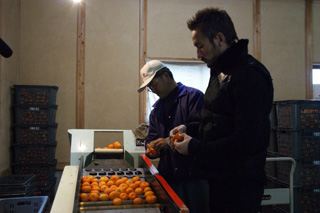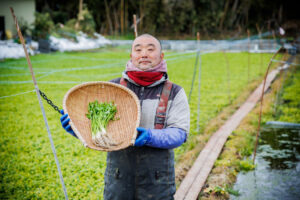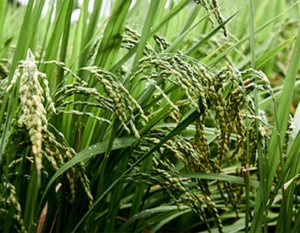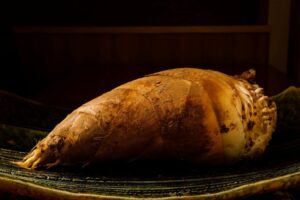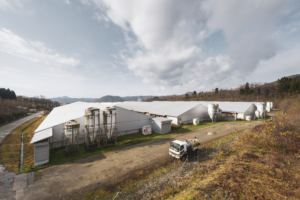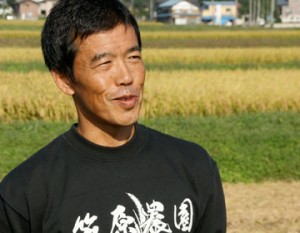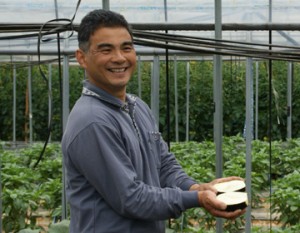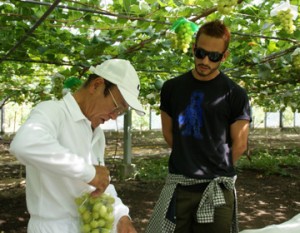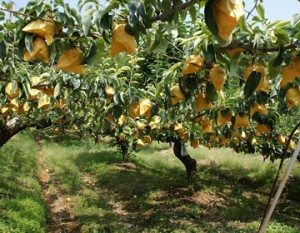The era of “plant and multiply”
In the southwest of Ehime Prefecture, there is a scenic land surrounded by the sea and the mountains, where terraced fields spread as far as the eyes can see. Here, in Akehama Town, there is the “Muchacha-en”, in which 100 mandarin orange farmers are joined to work on pesticide-free organic cultivation. It is a land where mandarin oranges have been cultivated since ancient times in the mild climate with little rain. The beginning of Muchacha-en dates back to around 1959. At Akehama, under the national slogan of “Plant and Multiply” in 1959, almost all the farmlands were planted with mandarin orange trees, and they were planted even on the smallest piece of farm land.
With a record production volume of 3.7 million tons, the fall in selling prices began. In the midst of severe competition due to over-cultivation, the mandarin orange farmers of Akehama gradually switched their products to high-class citrus fruits such as Iyokan and Ponkan. These citrus fruits are difficult to grow and require pesticides and fertilizers more than the conventional mandarin oranges. That affected the environment, and insects, crabs, shellfish and fish have all been decreasing since they started making mandarin oranges.
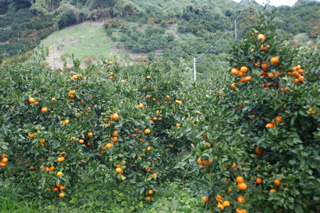
A new attempt
Having doubts about such a situation, Muchacha-en started in 1974 with 15 a (1500 m2) of Iyokan farming. The initial members were only three. Isn’t it possible to do agriculture that is friendly to humans as well as nature, without the use of pesticides and fertilizers—-. Isn’t it possible for farmers to labor for the joy of growing food, instead of having to labor painfully and the crops are bought only at cheap prices —–.
Even before the word organic farming was generally known, the people at Muchacha-en tried many things, aiming at such farming.
Muchacha-en, which first started with a field of just 15 a, has grown year by year, and it has now grown to a cooperative of 100 farMuchacha-en aims to coexist with the local community, and in order to cope with the aging farming population and large-scale farming, they are eager to build a system, involving the whole town.
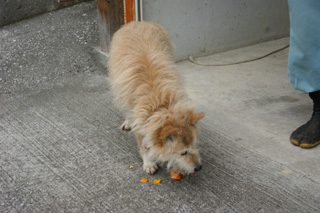
Consumers also support together
Another feature of Muchacha-en is that consumers are required to register as members. This is from the idea that the producers and the consumers have to build a visible relationship with each other, and have to coexist by understanding each other.
By registering as members, consumers will be interested in the ideas of Muchacha-en. Consumers can be convinced of the products of Muchacha-en they are purchasing, and mandarin orange farmers can grow products while thinking about their members. The registered members are not just consumers but ones who support Muchacha-en. Today, it has over 8,000 consumer members and sells not only citrus fruits but also rice, seafood, and processed products such as fruit juice.
Muchacha-en’s efforts to connect the farmers and the consumers. That may be the way of agriculture that leads to the future.
